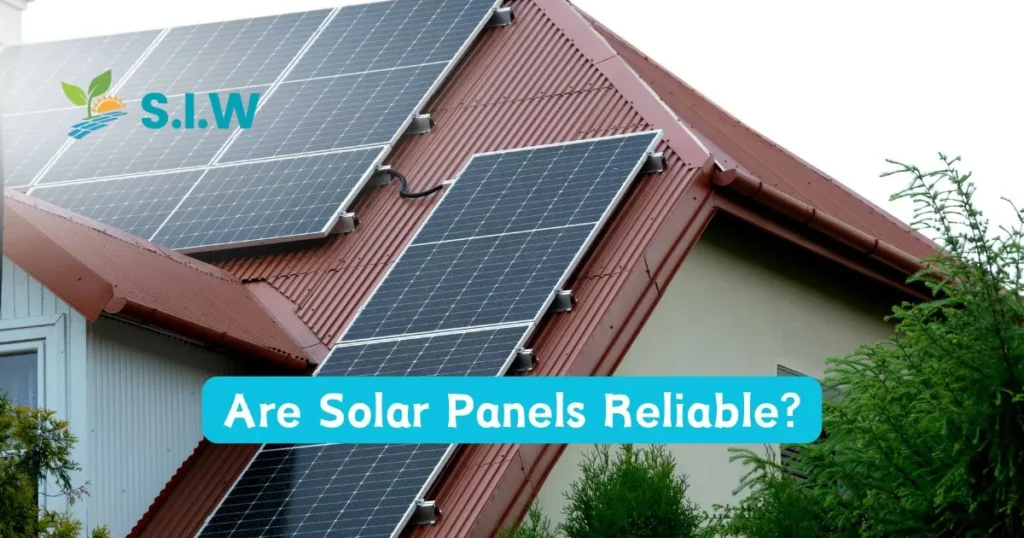In recent years, solar energy has become a popular choice for both residential and commercial properties. As the world continues to prioritize renewable energy sources, solar panels have emerged as a key player in reducing carbon footprints and lowering energy costs. But an essential question remains: Are solar panels reliable? This article aims to delve into the reliability of solar panels, examining their efficiency, durability, and overall performance.
Understanding Solar Panel Reliability
Reliability in the context of solar panels refers to their ability to consistently convert sunlight into electricity over an extended period. Several factors contribute to the overall reliability of solar panels, including the quality of materials used, manufacturing processes, installation quality, and the environmental conditions they are exposed to.
Efficiency and Performance
Efficiency is a critical factor in determining the reliability of solar panels. It refers to the amount of sunlight that a panel can convert into usable electricity. Modern solar panels typically have an efficiency rating between 15% and 22%. While this might seem low, advancements in technology have made even these rates highly effective for energy production.
The performance of solar panels can be affected by several variables, including:
- Temperature: Solar panels perform optimally at certain temperatures. Excessive heat can reduce efficiency, although high-quality panels are designed to minimize this loss.
- Shading: Even partial shading can significantly reduce a panel’s output. Therefore, proper placement and installation are crucial for maintaining reliability.
- Degradation Rate: Over time, solar panels experience a reduction in efficiency. The degradation rate is generally around 0.5% per year, meaning that after 25 years, a solar panel will still produce around 87.5% of its original output.
Durability and Longevity
Durability is another key aspect of solar panel reliability. Solar panels are designed to withstand various environmental conditions, including extreme temperatures, high winds, hail, and snow. Most panels are tested to meet international standards, ensuring they can endure harsh conditions without significant damage.
The longevity of solar panels is impressive, with most manufacturers offering warranties of 25 to 30 years. This warranty typically guarantees that the panels will maintain a certain level of performance over the period. Some high-quality panels even continue to function efficiently beyond their warranty period, providing reliable energy production for decades.
Maintenance and Upkeep
One of the advantages of solar panels is their low maintenance requirements. Once installed, they require minimal upkeep to maintain their reliability. Regular cleaning to remove dust, debris, and bird droppings is usually sufficient. Additionally, periodic inspections by a professional can help identify and address potential issues before they become significant problems.
Inverters, which convert the DC electricity generated by the panels into AC electricity usable by your home or business, may require more attention. Inverters typically have a shorter lifespan than the panels themselves, usually around 10 to 15 years, and may need to be replaced during the system’s lifetime. Ensuring that the inverter is functioning correctly is crucial for the overall reliability of the solar power system.
Technological Advancements
Advancements in solar technology continue to enhance the reliability of solar panels. Innovations such as bifacial panels, which capture sunlight from both sides and thin-film technology, which offers flexibility and durability, are pushing the boundaries of what solar panels can achieve.
Energy storage solutions, like solar batteries, also contribute to the reliability of solar energy systems. By storing excess energy produced during the day, batteries ensure a continuous power supply even when the sun isn’t shining. This development addresses one of the most significant concerns about solar energy—its intermittency—further solidifying the reliability of solar panels as a primary energy source.
Environmental Impact and Sustainability
Beyond reliability, solar panels offer significant environmental benefits. By harnessing the power of the sun, solar energy reduces the need for fossil fuels, thereby decreasing greenhouse gas emissions. The manufacturing process of solar panels has also become more environmentally friendly over the years, with efforts to reduce waste and use recyclable materials.
Furthermore, solar panels contribute to energy independence, allowing individuals and businesses to generate their own electricity and reduce reliance on the grid. This not only ensures a more stable energy supply but also protects against rising energy costs.
Common Misconceptions About Solar Panel Reliability
Despite the proven reliability of solar panels, several misconceptions persist:
- Solar panels only work in sunny climates: While solar panels are most effective in direct sunlight, they can still generate electricity on cloudy days. Modern panels are designed to work efficiently in a variety of weather conditions.
- Solar panels require constant maintenance: As mentioned earlier, solar panels are low-maintenance. Occasional cleaning and periodic inspections are typically all that’s needed.
- Solar panels are too expensive to be reliable: While the initial cost of solar panels can be high, the long-term savings on energy bills, coupled with potential government incentives, make them a cost-effective and reliable option.
The Reliability of Solar Panels
In conclusion, solar panels are a reliable and sustainable energy solution for both residential and commercial use. Their efficiency, durability, and minimal maintenance requirements make them a practical choice for those looking to reduce their carbon footprint and energy costs. As technology continues to advance, the reliability of solar panels will only improve, further solidifying their place as a cornerstone of renewable energy.








